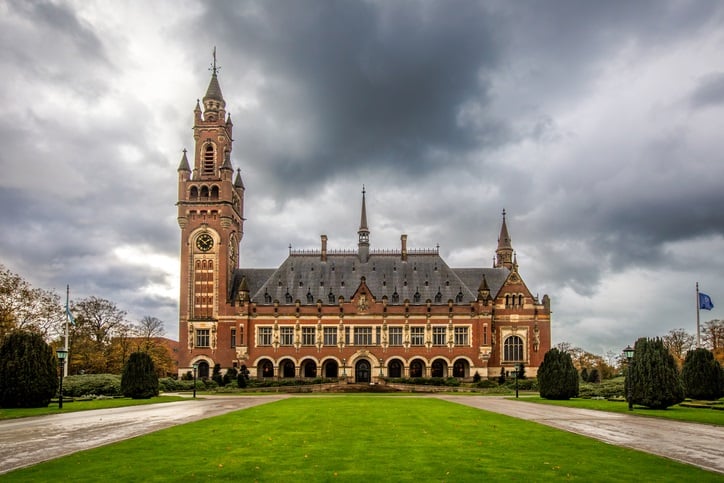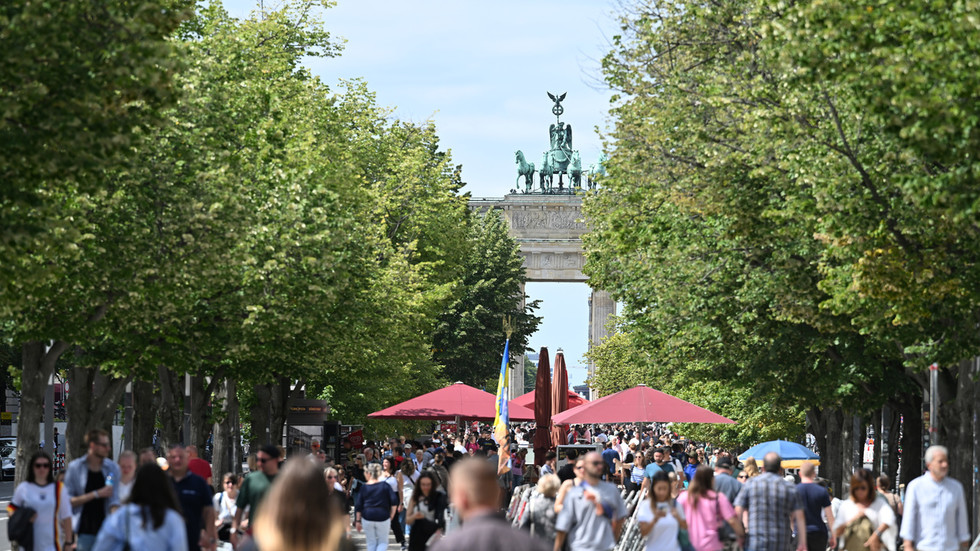The Peace Palace in The Hague, that houses the International Court of Justice.
Amith Nag Photography/Getty Images
- Ukraine said in its submission before the International Court of Justice that Russia’s use of force during the invasion was in contravention of the Genocide Convention.
- When Russian President Vladimir Putin ordered the Ukraine invasion in 2022, he said that pro-Russian people in eastern Ukraine were “subjected to genocide by the Kyiv regime”.
- In its preliminary ruling in 2022, the ICJ orderied Russia to end its invasion immediately.
The United Nations’ top court said Friday it had jurisdiction to rule in most parts of a case brought by Ukraine over Russia’s brutal 2022 invasion, with Kyiv urging reparations.
Ukraine dragged Russia before the International Court of Justice only a few days after the invasion, seeking to battle its neighbour on all fronts, legal as well as diplomatic and military.
When Russian President Vladimir Putin ordered the invasion on 24 February 24 2022, part of his argument was that pro-Russian people in eastern Ukraine had been “subjected to bullying and genocide by the Kyiv regime”.
Ukraine filed a suit at the ICJ, “emphatically denying” this and arguing that Russia’s use of “genocide” as a pretext for invasion went against the 1948 UN Genocide Convention.
In a preliminary ruling in March 2022, the ICJ sided with Ukraine and ordered Russia to halt its invasion immediately.
But Russia objected to this judgement, saying the ICJ, which decides on disputes between states, had no legal right to decide in this case.
The ICJ on Friday tossed out Moscow’s argument, saying it did have jurisdiction to rule on this.
READ | SA vs Israel: One week later, and still no sign of Israel’s compliance with key ICJ orders
However, Ukraine had also said in its submission that Russia’s use of force during the invasion was itself in contravention of the Genocide Convention.
The ICJ said it did not have competence to decide on this part of the case.
The court also said it did not have the power to rule on another point raised by Ukraine – that Moscow’s recognition of the separatist regions of Lugansk and Donetsk breached the Convention.
The ICJ’s rulings are binding and cannot be appealed but it has no means to enforce its decisions.
The court noted that it had already ordered Russia to “immediately suspend” its military operations but that “the armed conflict continues to this day.”
Thirty-two allies of Ukraine also argued in support of Kyiv. The ICJ dismissed a bid by the United States to join the case.
READ | US court confirms genocide case against Israel is ‘plausible’, but says it can’t block US weapons
The ICJ ruled on Wednesday in a separate case filed by Ukraine alleging that Russia financially backed separatist rebels in eastern Ukraine for years before the invasion.
The court mainly sided with Russia in that case, tossing out most of Ukraine’s requests and saying that Moscow had only failed to investigate possible breaches of terrorism financing law.
The ICJ is under heightened scrutiny at the moment with a high-profile case about the war in Gaza.
In a judgement beamed all around the world last Friday, it ordered Israel to take all action necessary to prevent genocide during its operations in response to the 7 October Hamas attack.
#Top #court #rule #Ukraine #invasion #case







